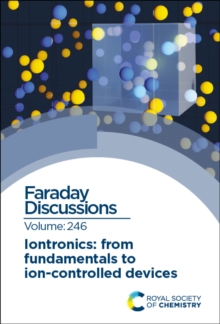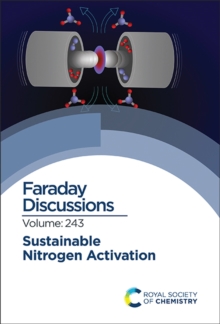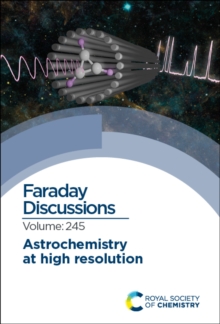
Harnessing Non-covalent Interactions for Synthesis and Catalysis : Faraday Discussion 244 Hardback
Part of the Faraday Discussions series
Hardback
Description
The areas of synthesis and catalysis are largely driven by non-covalent interactions, and it is therefore essential to understand, control, and manipulate them.
Doing so would allow for the optimisation of the properties and functions of new catalysts across the length scales.
The current challenges in this area include structure determination of reactive intermediates, ascertaining structure-activity relationships, modelling transient states in catalytic cycles, and developing processes for reliable synthesis of non-covalent systems. The format of Faraday Discussions facilitates in-depth, dedicated discussions between researchers from across the area of synthesis and catalysis.
This allows for a wide range of valuable insights and perspectives on the leading areas of the field. This volume brings together internationally leading researchers in synthesis, materials and catalysis, particularly involving systems where non-covalent interactions are crucial. In this volume the topics covered include:The importance of non-covalent interactions in synthesisUnderstanding the structural and electronic changes within these catalytic systemsModelling and computational analysis of reactive sitesControlling the activity and selectivity of a synthetic catalyst by manipulation of the surroundings
Information
-
Available to Order - This title is available to order, with delivery expected within 2 weeks
- Format:Hardback
- Pages:464 pages, No
- Publisher:Royal Society of Chemistry
- Publication Date:15/09/2023
- Category:
- ISBN:9781837670918
Information
-
Available to Order - This title is available to order, with delivery expected within 2 weeks
- Format:Hardback
- Pages:464 pages, No
- Publisher:Royal Society of Chemistry
- Publication Date:15/09/2023
- Category:
- ISBN:9781837670918










